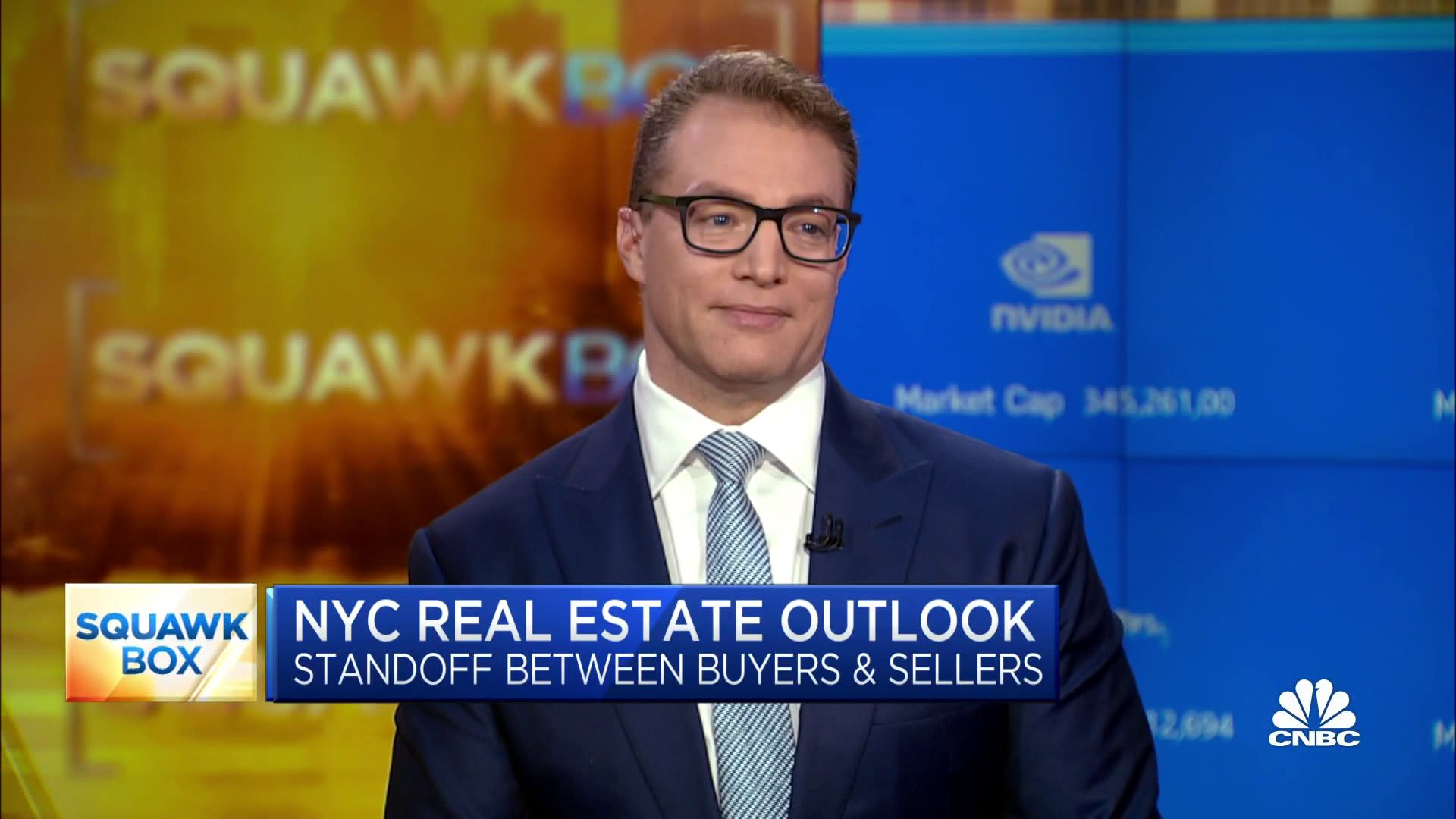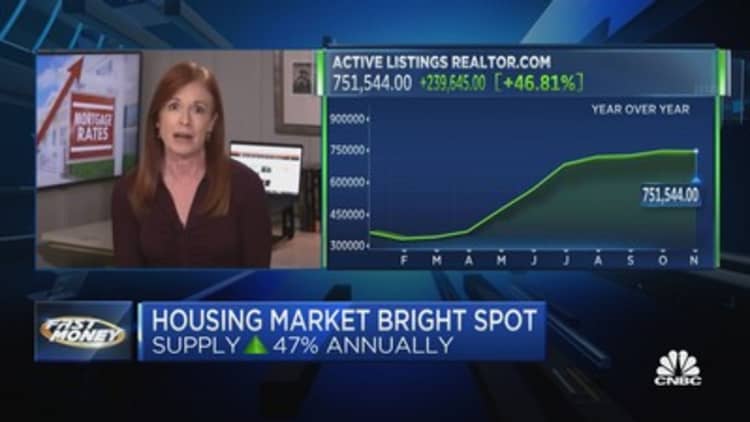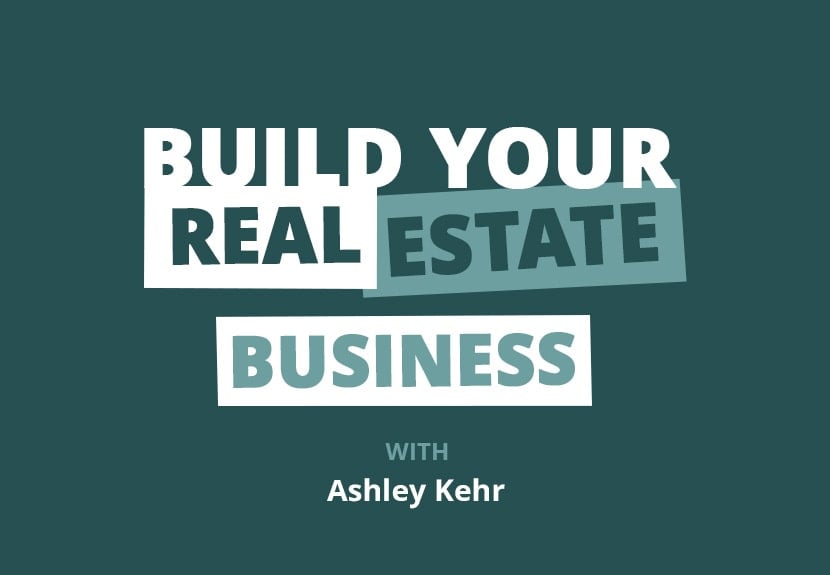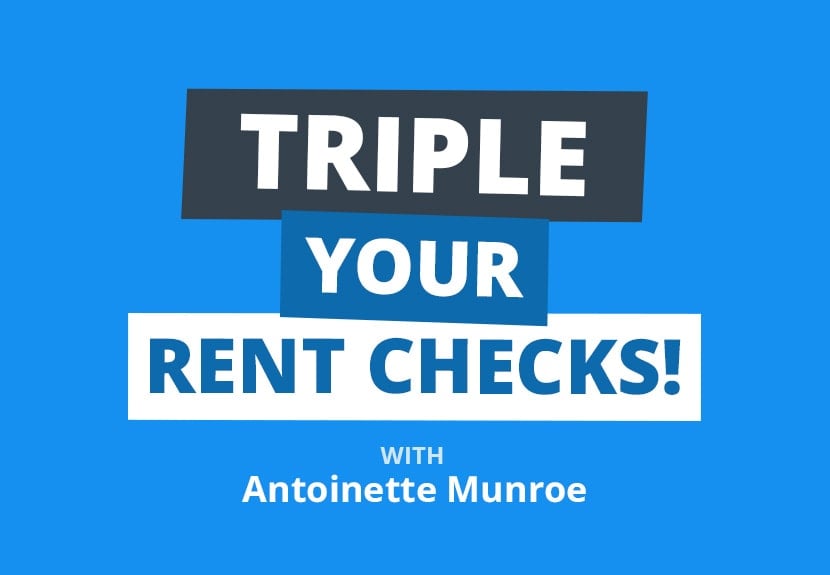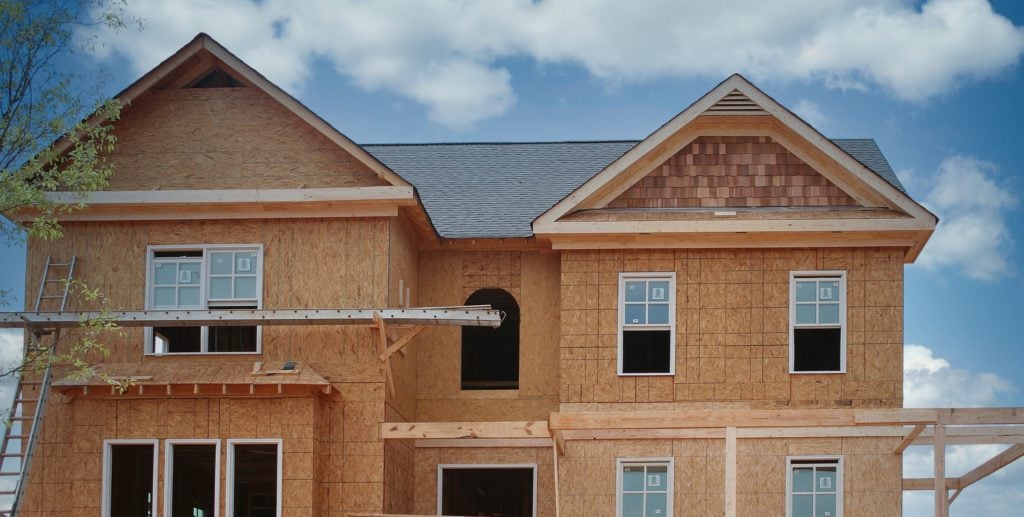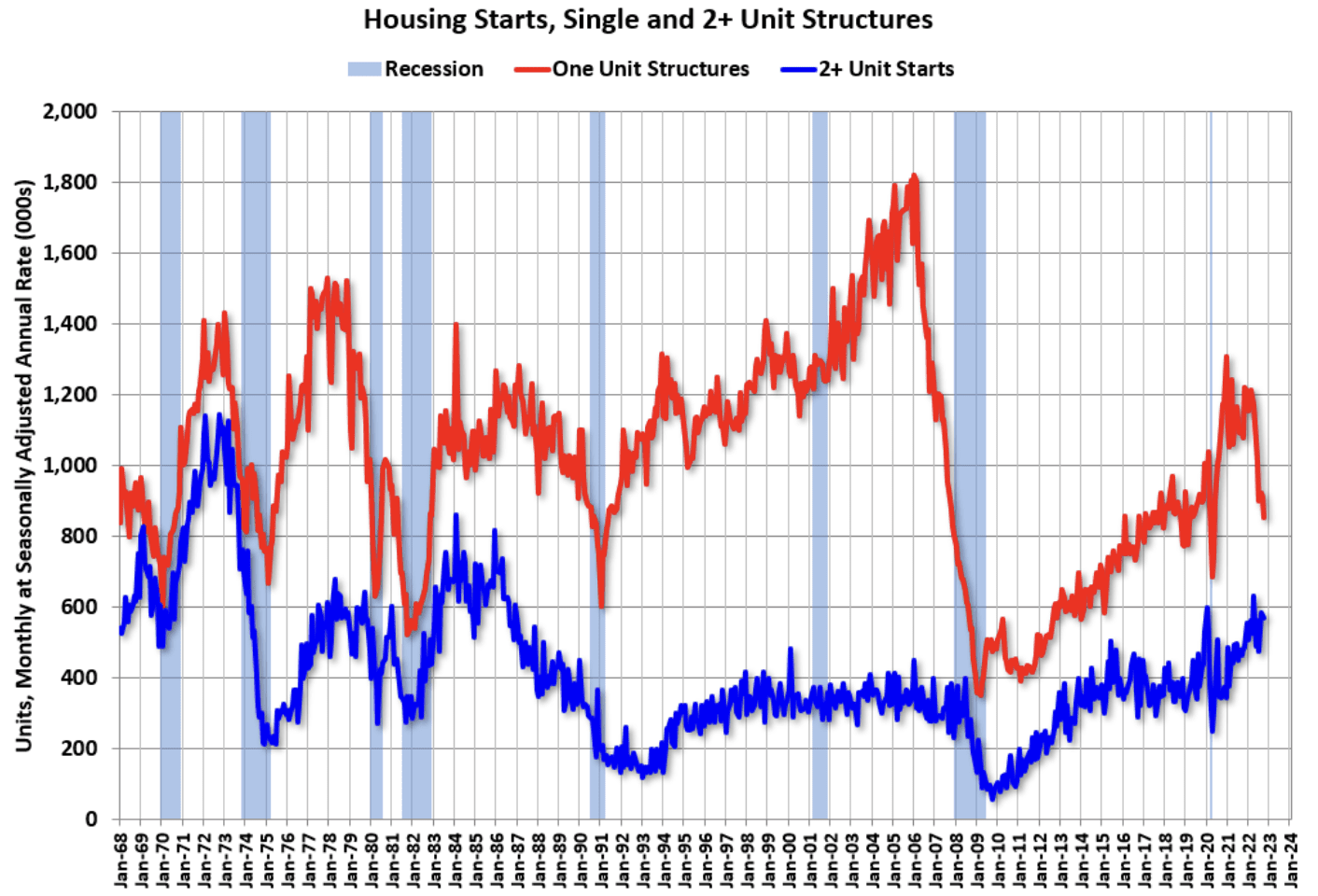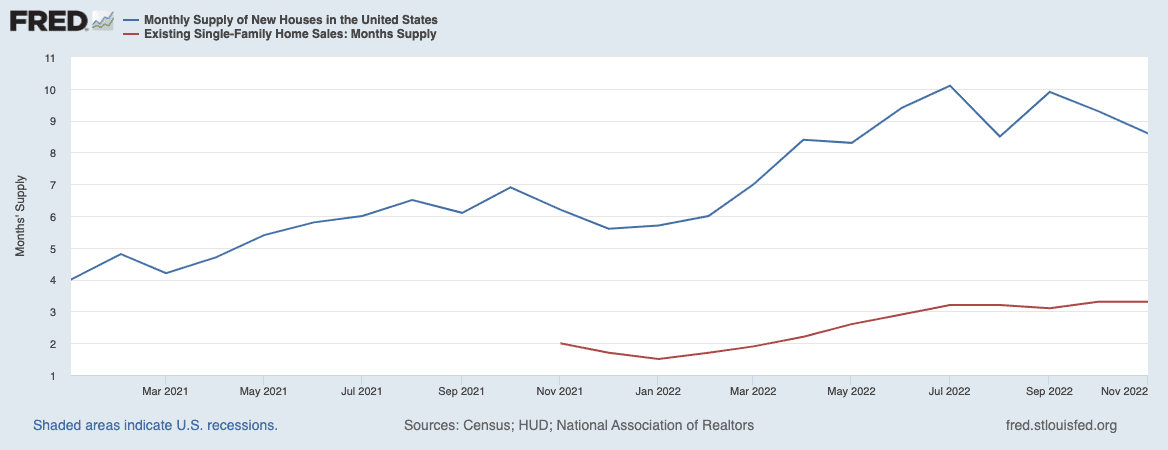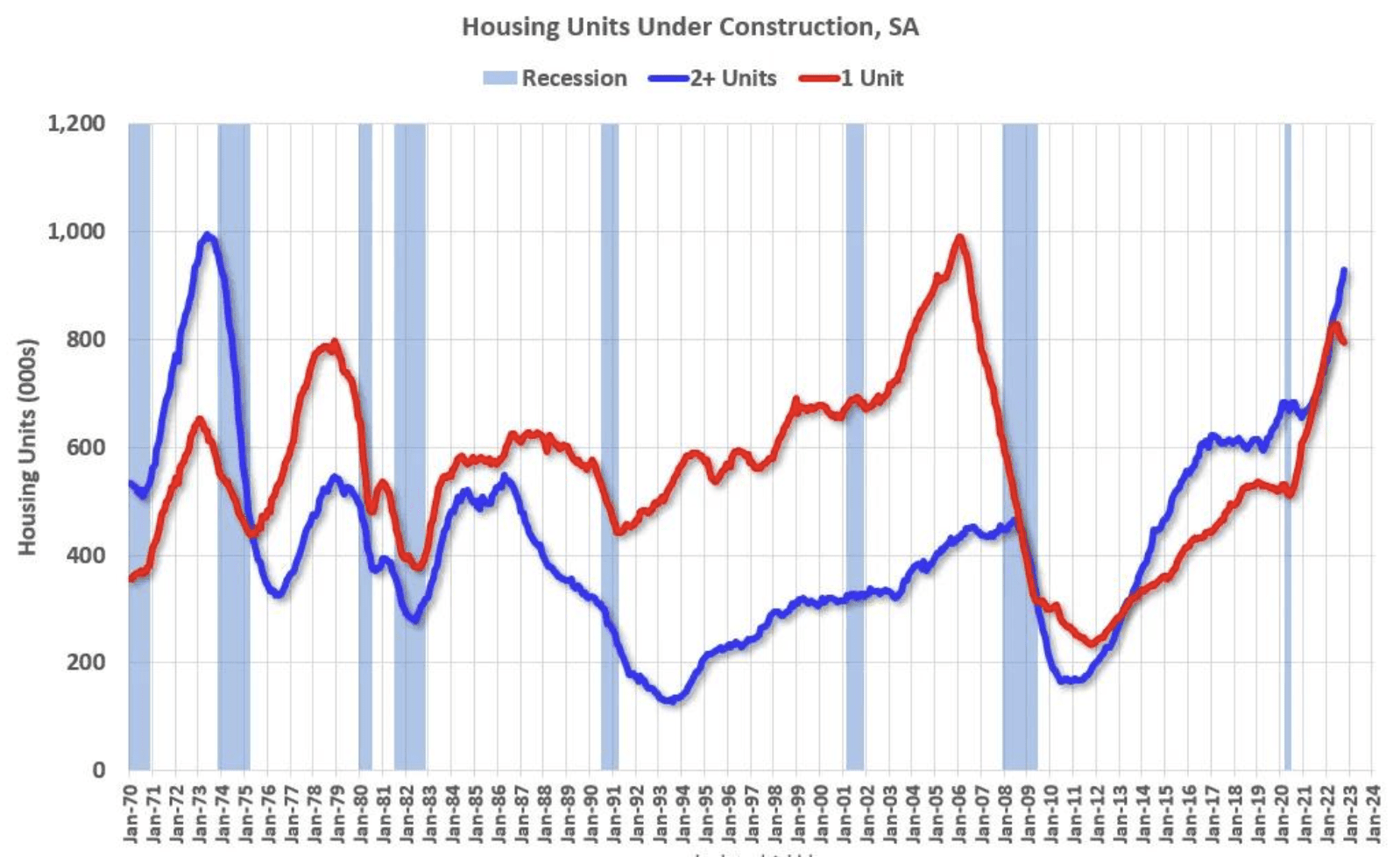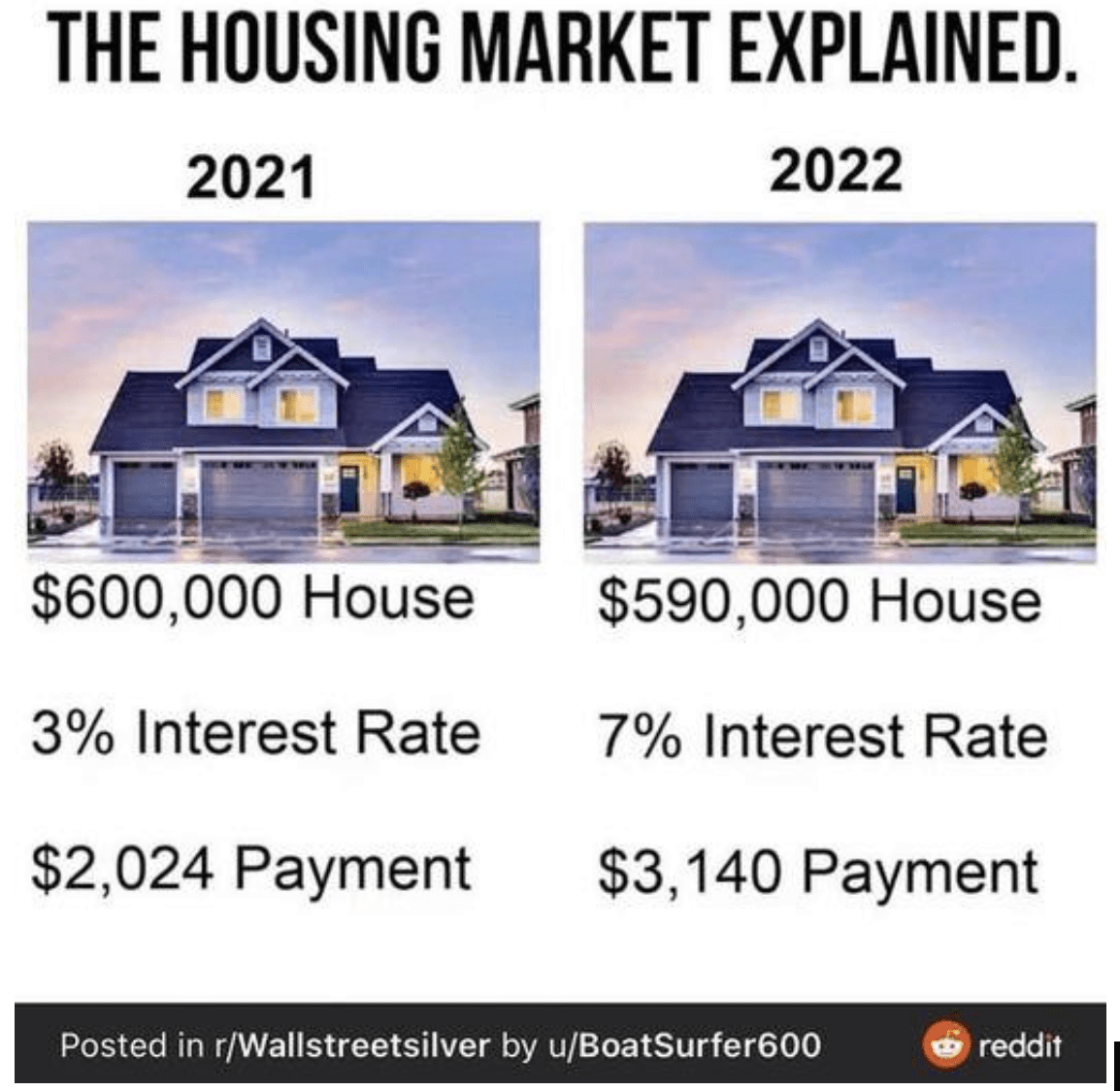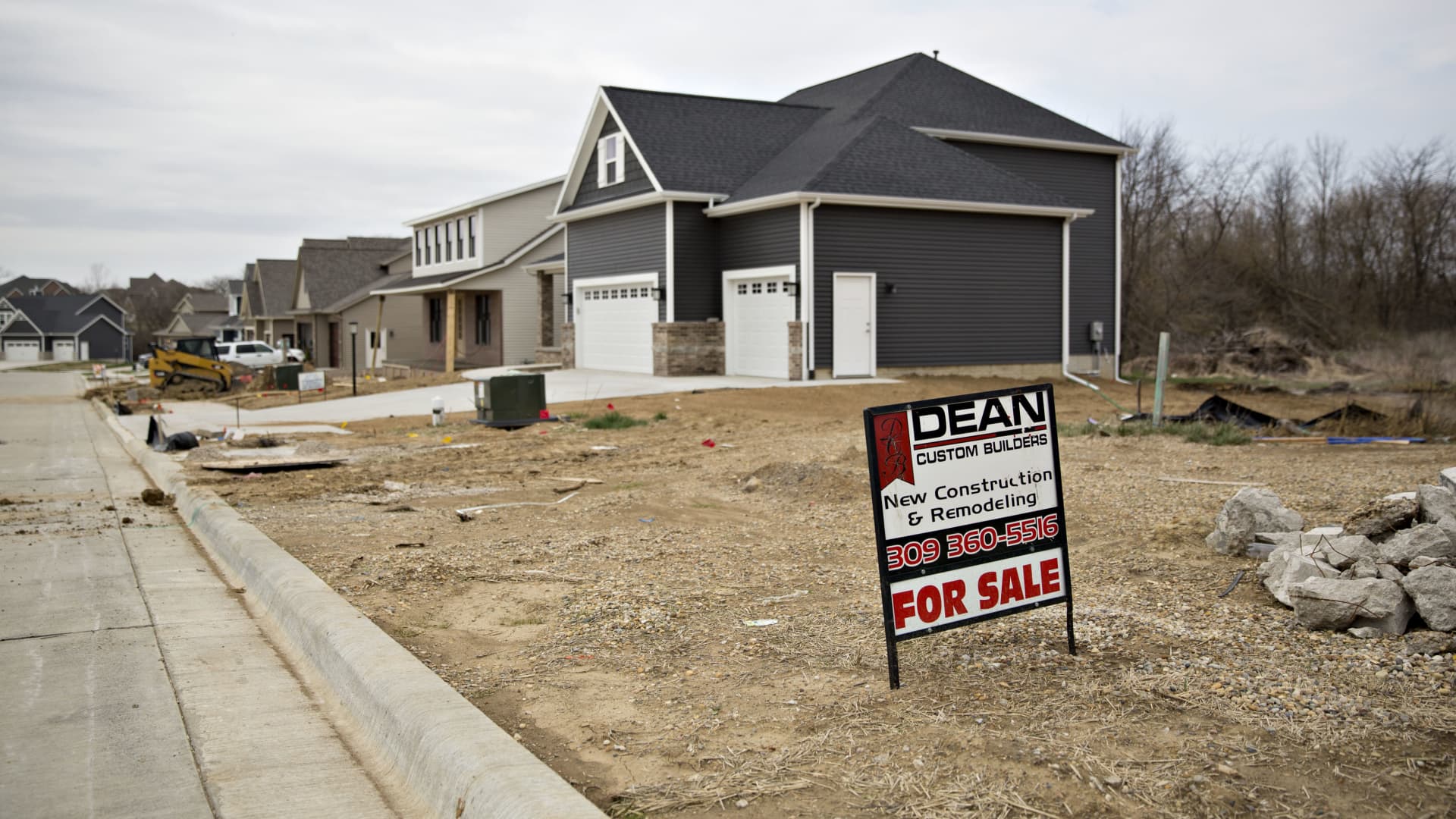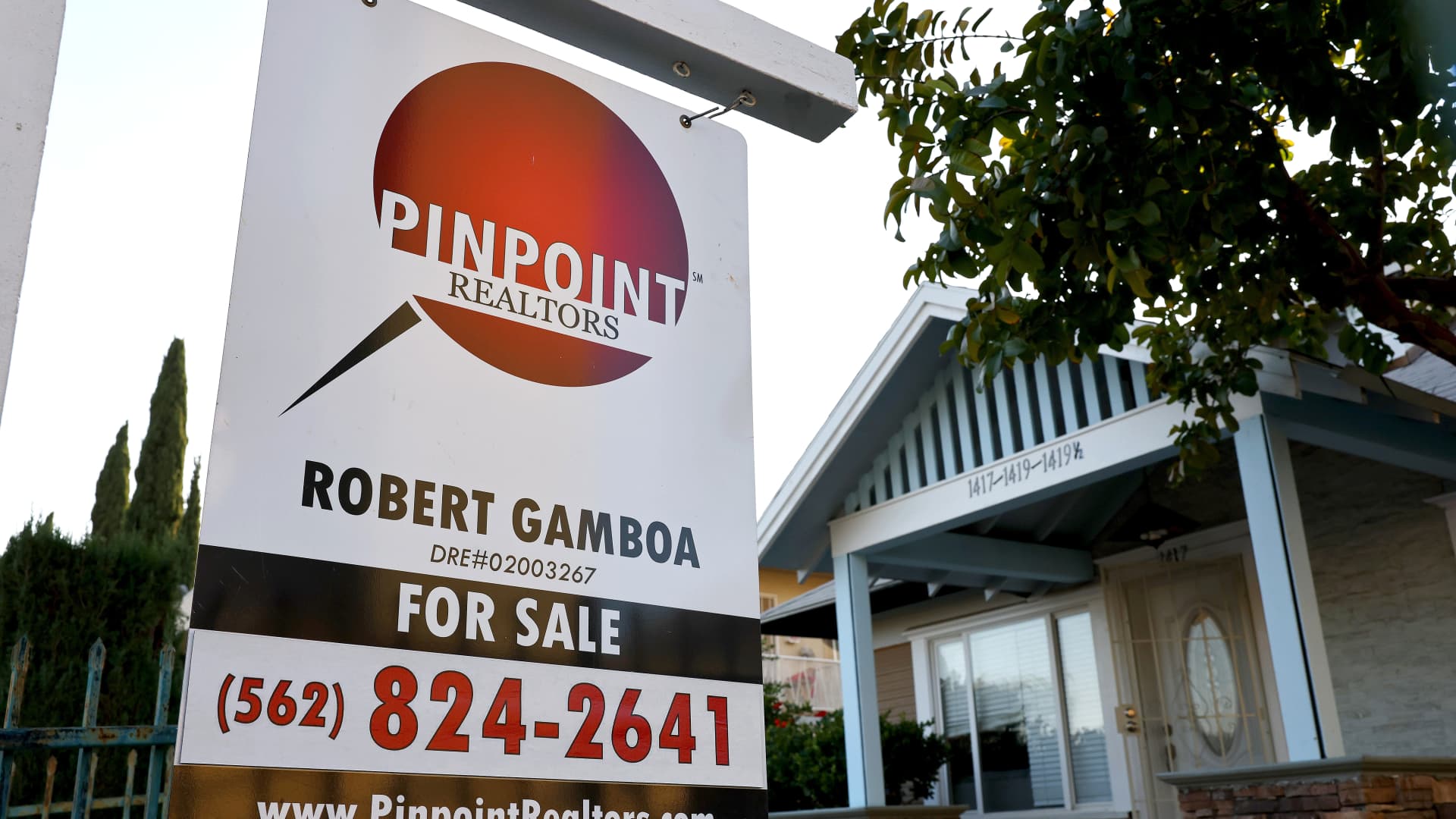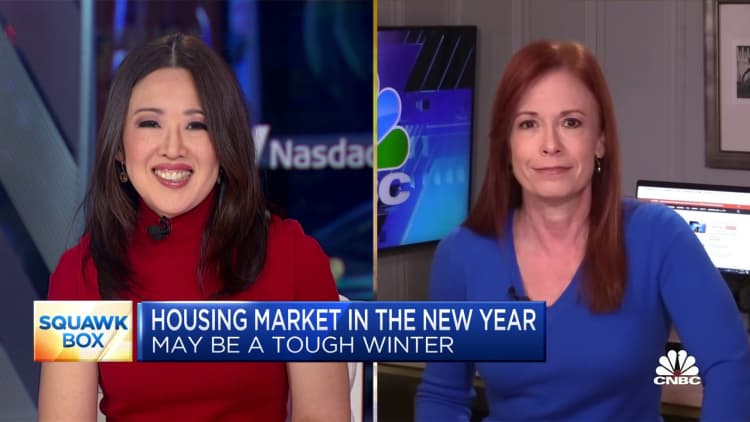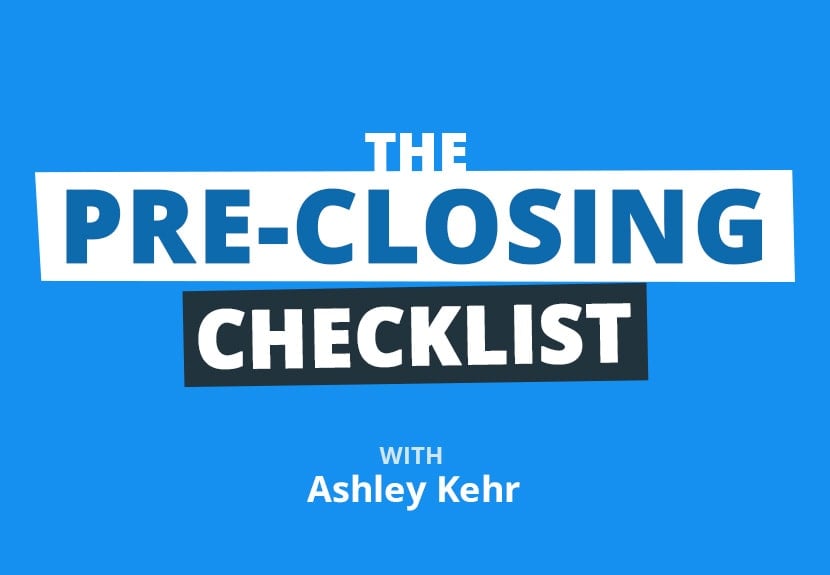Ashley:
This is Real Estate Rookie episode 249er. If you have an LLC or a corporation, 100%, you have to keep it separate because, or else you’re piercing that corporate veil that opens you up to liability. If you get sued, someone can say, “Well yeah, even though this property is owned by an LLC, the rental incomes are going into Tony Robinson’s personal account,” and that opens you up to a lot of liability. Where if you have the property in your personal name, you can co-mingle those funds by having it in the personal account that you do just have to track which ones are for business, which ones are for personal. My name is Ashley Kehr and I’m here with my co-host, Tony Robinson.
Tony:
Welcome to the Real Estate Rookie Podcast, where every week, twice a week, we give you the inspiration, motivation, and stories you need to hear to kickstart your investing journey. Today, I want to give a shout out some to someone from the Rookie audience who loved us a five-star review on Apple Podcast, goes by the username JustinG419. Justin says, “I feel like I finally found a real estate podcast that puts so many questions I have into perspective. This is a business I feel passionate about jumping into, and this podcast makes me feel like I can take this journey beyond just living comfortably.” Justin, we appreciate you. If you haven’t yet left us an honest rating review, please do. The more views we get, the more people we can help, and that’s always the goal here.
Ashley:
So we are live in Phoenix, Arizona right now. We are with our production crew in an Airbnb. Last night, we just did a meetup with over 200 investors from the Phoenix area and we actually had a couple people that flew in. So we interviewed Alexandra, who flew in from Fort Lauderdale, and then we met a couple that came from Ohio.
Tony:
Nick and Alexis flew in from Ohio. We appreciate you guys. And then another couple that flew in from California, Charles and Lele. So just so many great people that flew out just to come to this meetup. It was such a crazy cool experience. So if you guys wanted this to keep happening, we’re trying to persuade the BP team to keep this thing rolling, so get active in the Real Estate Rookie Facebook group. Say, “We want you guys to come to this city. We want you guys to come to this city.” The more support we get from you guys, the more often we can do this.
Ashley:
Yeah, it was really cool to network with everyone and just meet some of the rookie community and then also talk with experience investors too. So we did the meetup with Pace Morby and Jamil from On The Market. We got to sit down with Jamil and pick his brain on a couple things last night and it was really valuable.
Tony:
Also, a big shout out to Jamil because it was actually his birthday yesterday and he chose to spend his birthday evening hanging out with us at this meetup, so just goes to show how much Jamil care cares about the BiggerPocket community so we appreciate that.
Ashley:
Yeah, and it wasn’t us. It was all of the other people there that he wanted to spend it with.
Tony:
But Ash, we’re here for something special today, right? We’re talking about something special. So why don’t you show the people, if you’re watching this on YouTube, why don’t you show the people what you got?
Ashley:
So grueling year and a half. I finally have published my first book.
Tony:
Congratulations, Ashley Kehr, published author.
Ashley:
So it’s called Real Estate Rookie: 90 Days to Your First Investment. Basically, it just gives you the steps you need to take to purchase your first investment property.
Tony:
Before we get into the nitty gritty of the episode, just like how was it for you writing this book? Was it easy? Was it hard? Because some people say you get in front of the computer and it’s just like your brain goes blank. How was it for you?
Ashley:
Honestly, it went back and forth. At some point, I felt like all of this information in my brain, how can I articulate it onto a piece of paper? How can I even organize it and put into a piece of paper? Then other times it was just drawing a blank. I don’t even know how to even talk about this topic anymore. I just said what it is and what you need to do. So a big thing that I struggled with was I’m very analytical, so telling the stories that go along with it, that’s just not me. So that’s where I struggled.
Tony:
But how does it feel now to be holding this book in your hands?
Ashley:
Yeah, it’s still very surreal. So last night was really my first event with handing out copies. So someone came up to me to have them sign a copy and I was so excited. I was giddy and I take the book and I open it and Tony and Sara had already signed the copy of the book, but that just made for the best story ever. It was pretty great.
Tony:
She came up to me first. She’s like, “Can you sign my book?” I was like, “I didn’t write this.” She’s like, “I know, it’s okay. I just want you to sign it anyway.” I was like, “Okay, cool.”
Ashley:
Yeah, yeah, it was really funny. It was awesome. Yeah, so this book, it contains a lot of information about getting started in real estate investing. Everything that you read in this book, you can find on the internet. You can talk to other investors. The problem with real estate is there is so much information out there, information overload. There’s so many different strategies, so many different ways to finance a deal, to get a deal, all these different things. So what I tried to do is to build out these are the steps that you’re going to take and when you get to each step, think about these different scenarios or these different options and then you’re going to be able to build out what’s best for you. There’s homework. There’s checklists. We did a pre-order. If you were part of the pre-order, you got a whole bunch of these actual worksheets included in it.
Tony:
Yeah. So what are we going to talk about today? We got a nice slew of topics to talk about to get people ready for the new year.
Ashley:
So the topic that I picked out of the book, we’re going to dive deep into one of the chapters. This one is building a business. So real estate investing can oftentimes be a hobby or a side hustle to somebody. I really think it is important to run it like a business, so even if it’s just you’re purchasing your first property. It’s one property. It may not seem like it’s a business. You may be putting it into your personal name and not even opening an LLC. We’re going to talk about the reasons why you should still operate your rental property, your investment property, your flip, or whatever strategy you’re doing as a business.
Tony:
I think it’s so important for Rookie listeners to hear this because the best time to start treating it like a business is at the beginning. It is so much easier to set yourself up the right way when you have one property versus 30. We both experienced that where it’s like, oh man, if I would’ve done this a year ago, it would’ve been such a big difference and my business might be even further than it is had I done these things from the get go.
Ashley:
Because then you catch yourself having to backtrack and then you have to stop your growing and scaling and take time to, okay, we got to implement these things, put this in order.
Tony:
That’s literally where we’re at right now in our business where we’ve scaled so crazily over the past couple of years that the things that worked when we had five units aren’t working at 30. It’s like, okay, we need to stop before we add more units into the system because the system’s going to break. Now we’re going back and saying, “Okay, where are the things that are broken? How do we fix those? How are we supposed to make it more efficient?” So I think had we had those discussions early on, we could have saved ourselves.
Ashley:
Yeah, I met an investor last night at the meetup who was saying that this year, her goal, she’s not even going to buy any properties. She just wants to stabilize the large portfolio that she already has. She’s just grown and scaled so much and purchased so many properties that she’s like, I know that I can maximize my cash flow more. I know that I can make this more efficient and actually make more money off of them. I am just all over the place, so I’m going to take the time to really stabilize those properties so I know exactly this is my cash flow that I’m going to be getting, instead of constantly moving money around and upcoming repairs and expenses and just getting a better handle on how she’s running her systems and processes. Because when you have these things in place, it does save you money by doing some of these things.
For example, if you get a call that you need to have a toilet fixed or whatever, if you don’t have a contractor in place or somebody that you go to, you’re wasting time trying to find somebody, find somebody you never worked with them before, they’re maybe going to charge you a huge amount because they know it’s an emergency instead of already having that contact in place. Just simple things like that may save you money and you don’t even realize it. Or just taking the time to reevaluate your insurance every year. Am I still getting the coverage that I need? Do I need to shop my insurance out to actually save money? But that takes time and those are such easy things to be like just, every year, “Yep, my premium is paid, automatically deducted. Everything is good,” and not reevaluating things like that.
Tony:
Yeah, I think the biggest thing is treating your real estate investing like a business and not a hobby. And so many people come into this, especially rookies, where they’re so focused on and rightfully so around analyzing the deals and funding and all these other things, but what are the systems we need to put in place so that it is an actual business and not just a real estate investment? Because at the end of the day, we are still entrepreneurs. We’re entrepreneurs and it just happens to be that we’re in the real estate space. But if you talk to every other entrepreneur, they’re not just focused on building the widget. They’re focused on building the business that builds the widgets, right?
Ashley:
Yeah. I think before you even get too focused on building out the business system, you have to look at yourself too. As a new investor, it’s mostly likely going to be just you starting out. So one thing I highly recommend you do is do a time tracker on yourself. So one of the reasons you could be holding yourself back from getting started is that you don’t think that you have time. So I’d like to challenge you guys to do a time tracker where for the next week, even the next two weeks, you are tracking everything you do. So you wake up, you ready for work, you eat breakfast, you drive to work. You could even break down your work. If you have a W2 job, what you’re doing there to see if maybe there’s room to actually maximize your performance there.
Then when you get home from work, is it an hour of Netflix? Is it, oh my gosh, 30 minutes have been gone and I’m scrolling on Instagram? Is it I’m cleaning and that’s something that’s actually affordable for you to outsource and you know would make a better return of actually taking your time to find real estate, look at deals, analyze deals? So doing that time tracker can help you figure out where your wasted time is going and where you can find time to invest in real estate. Then once you actively have your property too, then you can take it a step further and see what are the time wasters. What are the things that I’m doing that are actually helping me move forward? So back to the cleaning example of your house. If you’re not finding time to analyze deals, you can outsource that. But if you take it into the business, one thing, and we’ll talk about this maybe later on in this episode about outsourcing, what are some things in the business you can outsource where you have a better chance of doing something else that’s going to bring that bigger return?
Tony:
So many good points and we’ve got a long slate of super important things to talk about. So you want to jump into the first one?
Ashley:
Yeah, yeah.
Tony:
Okay, cool. So we’ve got a lot of really good things to talk about today. So I want to jump into our next point here, which is financials. What’s your advice, Ashley, to all those rookies out there that are wrapped… First, define financials. Before we can talk about why, just what is it?
Ashley:
Okay, so your financials is basically the overview health of your business and it’s showing where the money is going. The two things that I think are super important to be able to read as far as financial statements go, and there are a ton of different financial statements; you can pull your cash flow report, you can pull a detailed rental income report showing what each tenant is paying, all these different financial reports, but the two that I think are most important to learn as a rookie investor is the profit and loss statement and also the balance sheet. So the profit and loss statement is going to show your total income that you’re receiving, so this would be your rental income, any pet fees, any other monthly charges or charges that you’re bringing in. Then your expenses are going to be what you pay for that property, so your property taxes, your insurance, any repairs or maintenance.
So any cash that you are paying out for the property, that is a tax write off that is directly an expense for that property, so even professional fees when you purchase the property, paying an attorney for that. And then the profit and loss is going to show at the bottom what your net income or your net loss is. So in a profit and loss statement, one thing to realize is this does not include any debt repayment. So your net income or your profit and loss, whatever that bottom line is, is going to be different than what your actual cash flow is. Then when you go into your taxes, one of the greatest tax advantages of being a real estate investor is depreciation. So your accountant, your CPA, will add in that depreciation, which isn’t actually cash coming out of your pocket in that year. So it’s important to know the difference between your cash flow because the cash flow is actually cash coming in and out, where your profit and loss is actually for tax purposes, mostly, and also underwriters, if you’re going to get loans who will want to see your profit.
Tony:
That’s interesting. I actually do show my mortgage payments on my profit and loss statement.
Ashley:
It would be the interest.
Tony:
So we show the principal and the interest as separate line items and then our taxes and insurance as well.
Ashley:
But when you do your tax return, when you do the profit and loss, the principal payments wouldn’t be on profit and loss.
Tony:
Wouldn’t be applied. Yeah, right, right.
Ashley:
So the interest, you can write off as an expense on the profit and loss, but not that principal payment of the mortgage payment.
Tony:
Well for me, I just like to see at the end of the month, okay, how did this property do?
Ashley:
Yeah, so really you’re doing an, even though you’re pulling a profit and loss statement, it really is a cash flow statement. Yeah, because doesn’t you don’t include depreciation.
Tony:
We don’t include that.
Ashley:
Yeah, yeah. Wait till that end of the year. Yeah, that would basically be the cash flow statement then. See, you’re learning new things. And then the other item is the balance sheet. So this is going to list your assets and your liabilities. So if you have ever figured out your net worth, this is somewhat similar. So how much cash is in your bank account? What did you purchase the property for? And then any liabilities. So what’s your mortgage amount for? Any other liabilities you have? Maybe you have a private money lender, things like that, or maybe you owe a vendor money. That would go under accounts payable, which would be listed on there. Then you’re taking your assets and you’re subtracting your liabilities from that to show your-
Tony:
How often are you pulling your balance sheet?
Ashley:
Actually, I really don’t. I like to look at the dashboard to look at what my bank account balances are, but I really don’t look at my balance sheet except for at the end of the year.
Tony:
I almost never did either, but we just hired a new bookkeeper and she now sends it out monthly. That’s been cool to see because I never really looked at it before, but she’s doing it on a monthly basis.
Ashley:
The thing that’s nice too is when you have a bookkeeper too, or even if you’re doing it yourself, is when you take the time every single month. So when you are making that loan payment, you’re separating the interest to show the interest is an expense, but then you’re also taking that principal paydown and you’re taking that principal paydown and subtracting it from your mortgage so that when you do get that snapshot, you’re seeing, wow, my mortgage balance is this exact amount every single month. There are a lot of people I see that do it at the end of the year. So they just throw those payments all into the mortgage paydowns, your balance looks low, and then at the end of the year, their bookkeeper accountant will go in and do that adjustment and move the interest to the interest line item. But then instead of doing it every single month, they’re doing it at the end of the year.
Tony:
I think this is why it’s super important to have a good bookkeeper. We had a virtual assistant as our bookkeeper for a while and she did a great, I think when our business was smaller, but as it’s scaled, I think it was way more complex than I have the knowledge to even teach her how to do these things. So we just recently invested in a much more expensive, someone who’s based here stateside, bookkeeper and she’s been with us for maybe two and a half months now. It’s already been a world of a difference, reporting, the accuracy of our books and hopefully come tax time, it’ll be so much easier to do our prep because the books are much cleaner.
Ashley:
Right and they’re just up to date. You don’t have that shoebox of receipts that at the end of the year you’re handing to your accountant, “Here’s everything I bought.”
Tony:
Try and figure it out.
Ashley:
“I wrote down they paid $600 per month times 12, so that’s how much income I had.” And then also when you’re doing your bookkeeping as doing those monthly bank reconciliations. So two great tools for investors to use to actually track all of their income and expenses and their financials is QuickBooks or Stessa. So QuickBooks is great, but it is used by so many different businesses. So if you are hiring somebody who has knowledge of QuickBooks, great, let them run with it. But if you’re going to do it yourself and you don’t have a lot of knowledge on bookkeeping, I highly recommend Stessa, that’s S-T-E-S-S-A, so assets spelled that backwards.
Tony:
I literally didn’t learn that until after a year of using it.
Ashley:
I know, and I feel like everybody was like… It blew everybody’s fine. But that is targeted towards real estate investors and it’s very specific so that you’re not overwhelmed with all these different choices of, okay, what should I label this expense for?
Tony:
I’ve been thinking about playing around with a short-term rental specific bookkeeping software because I love Stessa, but it was geared more towards traditional long-term rentals. As a short-term rental operator, I felt like there was some gaps there. So I don’t know, if you guys think I should launch a short-term mental accounting software, let me know.
Ashley:
I think that’s a huge yes. Actually at the meet up last night, me and Sara were having a conversation with someone about how the short-term rental market is still behind in software.
Tony:
Totally.
Ashley:
How it has definitely grown, but there still are a lot of gaps in it too. Then another guy was talking about medium-term rentals now, how there’s nothing that is specific to that. You’re juggling at least two different softwares to get that done.
Tony:
So if you’re a developer and you want to work with me on building this out, hit me up. All right, should we talk about maybe budgeting? What are your thoughts on budgeting as a rental investor?
Ashley:
So I think we harp on all the time as having those cash reserves and knowing what your monthly expenses are so that if you are not getting rental income, you can plan to pull out of your cash reserves to budget for it. So as your portfolio grows, this gets more complex, especially if you start bringing on team members and having a payroll to cover and having other people to pay. But as far as your set monthly expenses, you should know what that number is by looking at your profit and loss and knowing, okay, every month I know what these fixed expenses are.
So if you’re using the BiggerPockets calculator, when you ran your numbers on that deal, you already know. Then you have your variable expenses and that’s where you should be keeping an eye on how much extra am I actually spending from, maybe there’s a capital improvement coming on or a big repair or something that I didn’t expect, and planning ahead for some of those big ticket items. Or if you have that big ticket item, how are you going to pay back your reserves and replenish that reserve account too?
Tony:
Yeah, I think it’s such a small nuance, but super important because I think so many people forget about a lot of those expenses and especially outside of your normal operating expenses. We talked about this in a reply yesterday around just if you know that you’re buying a property that’s, I don’t know, 25 years old and the roof has never been replaced, maybe at some point you start thinking about setting money aside for the roof, right? Everything in your property has some level of serviceable life, your water heater, your appliances. We have to replace a garage door opener at one of our other properties. There’s so many little things that pop up. So keeping money set aside for those expenses that are non-regular is something a lot of rookies I think forget about.
Ashley:
And we had a question recently asking for the reserves account, how many accounts are people actually having? Are you setting the 10% vacancy reserves in one account, the repairs and maintenance savings in another, the capital improvements in another? Really, I think that’s a personal decision as to how well you can have self-control of, wow, there’s a thousand dollars in my account. You know what? I can actually take out some more cash flow this month. And then it’s like, oh, those were cash reserves. I’ll pay them back at some time. But if it’s out of sight, out of mind and you need it in that separate account that it’s not super accessible at, then yeah, you do that. So I think that’s more of a personal decision.
Tony:
We set ours up so that we have one reserve account for each property. So every property has its own operating expense account and then each property has its own reserves account. That way we have some separation because I don’t know, just for us, it makes-
Ashley:
And plus you have multiple different partners.
Tony:
Different partners as well. We almost have to set it up that way. Actually, for our properties that we don’t have partners on, we just have one reserve account for all of them. So I guess it depends on the partnership.
Ashley:
Yeah, that’s the same with me for my personal property. I just keep it into that LLC and then each partner have the different LLCs and we keep a minimum balance in those accounts.
Tony:
So let me ask you this question because it’s something we’ve been talking about recently, as well. We have a big bill that can’t be from one of the properties. I can’t remember what it was, but it ate up a lot at the reserves and we’re having discussions in terms of like, okay, do we just stop taking cash flow from the property until we build the reserves up? Or do we just continue putting away the five, 10% that we usually do? What do you do when you deplete your reserves?
Ashley:
I let it build back up. I stop taking… First of all, I really don’t take any cash flow out of my rentals. I reinvest it right now, but I build it back up to keep that minimum threshold because it gets replenished faster.
Tony:
So much faster.
Ashley:
And I just sleep better. Yeah, yeah, yeah.
Tony:
And that’s the conversation we’re having some of our partners. It’s like, hey, we know the next three months might be a little quiet, but after that, we’ll all feel better.
Ashley:
And actually, I’ve even moved money out of my personal account into it, so did a owner’s contribution into the LLC to replenish it back to that month. That shows on the financials that I took that cash flow out, I put some back in and then it doesn’t-
Tony:
That’s a smart way to do, right? You just replenish it and then just let yourself get paid back from the cash flow.
Ashley:
And also, you can do it instead of a owner’s contribution, you could also do it as the LLC owes you that money back too, that it’s a loan. So you set it up as an accounts payable, so the LLC owns you, pays you money. So that’s what we’ve done with my one partner, Joe, and one of our LLCs where we both put in some money and we actually set it up as loan payables back to ourselves and we’re earning 5 1/2% interest on that money we lent to the LLC. We get $302 each direct deposited into our bank account.
Tony:
That’s pretty smart though.
Ashley:
Instead of taking cash flow, I get a couple payments back of money that I’ve put into the property then.
Tony:
All right. Not to go too far off on a tangent, but now that money that you’re getting back, it’s no longer an owner’s distribution, but it’s active income on that-
Ashley:
The interest.
Tony:
Right, just the interest.
Ashley:
On the interest, yeah.
Tony:
Okay. All right. Interesting. There you go. So let’s talk a little bit about, on the same thread, you said you put some money in, but what are your thoughts on intermingling your personal finances with the business finances? Is it a hard line for you? Do you just have everything blended in together? I know some investors are like I have one account and all my business stuff is coming out of this account, all my personal stuff is coming out of this account. It’s all the same thing.
Ashley:
If you have an LLC or a corporation, 100%, you have to keep it separate because or else you’re piercing that corporate veil that opens you up to liability. If you get sued, someone can say, “Well yeah, even though this property is owned by an LLC, the rental incomes are going into Tony Robinson’s personal account,” and that opens you up to a lot of liability. Where if you have the property in your personal name, you can co-mingle those funds by having it in the personal account that you do just have to track which ones are for business, which ones are for personal. I still prefer, even when I had my rental properties in my own name, I opened just a second checking account in my personal name and just had it labeled Ashley Properties.
I still did all of the transactions through that, just because it’s easier on the bookkeeping because all of those expenses, all that income is for the property, instead of having to go through your bank statement every month and highlight this was for groceries, this was, oh, this was for repairs or you know what? I can’t remember. I had the plumber come to my house and I had them go to the property, which one was which. So I think it’s definitely easier on you, but also if you have the LLC or the corporation, you have to keep them separate. Then with a credit card too, I think it is so much easier to open a credit card that is specifically for your business. So you could open your credit card in your personal name and you could put the expenses on it, and then the company just reimburse you for those expenses you did. But for me, just the same thing of having to go through your credit card statement and highlighting this was for personal, this was for business.
Tony:
And the amount of effort it takes to open up that business account is so exceptionally level and in a lot of places you can get it for free. It’s like why wouldn’t you do it?
Ashley:
Think of all the points. You get the points too.
Tony:
So for us, we have a few credit cards for our business. We have one personal card, but we only use it for business expenses. So even though it’s in Tony Robinson’s name, all the charges on there are business charges. we also have business named credit cards. We have both, but same. And then I have a separate credit card that’s in my name, but just for personal stuff. But same thing, I never try and co-mingle those two because the bookkeeping is just so difficult to maintain and you make it harder on yourself, make it harder on your bookkeeper, make it harder at the end of the year when you’re doing your taxes. But just having that one account, you know everything is going to be for the business.
Ashley:
And if you have a bunch of different LLCs, having those separate credit cards for the LLCs too, so it’s not like, oh, I only have this credit card, but it goes to this LLC, so now this LLC owes this LLC money. There’s been circumstances where I’m at Lowe’s and it’s like, ugh, I don’t have the right credit card. What do I do? So I pay for it that I have to make notes to reimburse and I go home, transfer the money from that one to the other one.
Tony:
That’s the only downside is when you’re doing… Like for example, we just bought 30… There’s these devices we buy for our short-term rentals. We had to buy almost 30 of them. Each one was for a different property. Every property has its own account. we’re like, man, what is the best way to buy this? So essentially, we just paid for it once with our main business credit card, and we had to make payments, transfers from all the different property account. So it can get complicated sometimes, but I feel like in the long haul it makes more sense.
Ashley:
We’ll talk about, we can go into this now if you want, is talking about the bookkeeping and even outsourcing. What are some things you can outsource? That right there is a very easy example of something that you can outsource is if you are going to have multiple properties or multiple LLCs is how can you break out some of those expenses that apply to all the different properties? When I started self managing, I had my partnerships and I was doing all the self-managing. It got to the point where, okay, I’m doing a lot more work and there’s these expenses. I’m not going to go to the post office and buy a roll of stamps and then invoice each LLC for a third of the price of the stamps because I’m going to use the stamps for all of the mailings.
I’m not going to go and buy three different stamps and then oh, I got to make sure this stamp goes to this LLC. So what I did was I created a development company that acted as a property management company almost. So there was a property management fee paid to the management company that would cover a lot of that overhead that was spread out between the other ones. Then it wasn’t having to detail the breakdown of which ones do these go. But if you have several properties and then LLC them… Maybe you are updating your leases and you pay an attorney that lease fee, then you can go through and you can break out that payment to each property, so it’s divided out equally.
Tony:
See, I just want to talk a little bit about the outsourcing the bookkeeper piece because we’ve done that a few different ways. Initially, I was a bookkeeper in our business, which was not sustainable in any way, shape, or form. Then we hired someone overseas who was in the Philippines to take on our books. And more recently, we’ve hired someone here at stateside. Each phase has its own pluses and minuses, but here’s what I’ll say. If you do want to hire someone virtually overseas, they’re exceptionally inexpensive. I think we were paying our bookkeeper like six bucks an hour, which is crazy.
Ashley:
How long would you-
Tony:
We had her for two years.
Ashley:
But I mean, how much would it take her to do your books? How many hours a week?
Tony:
I think we had her capped at 20 hours a week, so it wasn’t even full-time work. I don’t even think she was hitting 20 hours every week. It depended. When we first started, she wasn’t. Now, she was, I think, working close to 40 hours a week. But the issue with going overseas is that you, as the owner, are the cap on how effective that person is. So they’re only going to be as effective as you can train them and teach them to be. I am not a CPA, so there were so many different things that were happening in our business that I didn’t have the technical understanding to educate her, RVA, on how to do that correctly. So now when we hired this professional bookkeeper, she came in, she’s like, “Tony, your books are a mess.” And I’m like, “Yeah, I can totally understand that,” but it’s because I didn’t give RVA the correct knowledge because I’m not a professional bookkeeper. I’m not a CPA.
So I was like, eh, just do this. Ah, just do that. You do that for a year, your books become a mess. So anyway, my point to the rookies is if you do want to go with the virtual assistant, I think it’s fine, but limit their scope to match your level of expertise. So now RVA, the only thing she really does, is take the receipts and apply them to the expenses. That’s all she does. I think she’s also downloaded mortgage statements and things like that. But anything beyond that, now it’s our stateside bookkeeper because she has the knowledge, she has the expertise, to really do that correctly.
Ashley:
So we kind of talked about having a key person, a bookkeeper, and then also the financials and how to track that and different ways you can use software. So I want to touch on more software because it can change your life as a real estate investor, just make your life so much easier. So first is project management software. So we both use monday.com.
Tony:
Love Monday. Monday, sponsor us, please.
Ashley:
Yeah. So monday.com, as you build out these boards where you can create checklists, you can track performance, KPIs, you can track your rehab, all of these different templates that you build out that you can use over and over again. Another one that I’ve used before is Asana. So actually, any of you listening, if you’re in the Real Estate Rookie Bootcamp, you do have… Actually, I created a template for a rehab that you can actually use for Asana. I had pulled it right out of there, but you can even take that information and build it into a Monday board or something like that too. Then another one that goes along with that is Loom.
Tony:
I was just about to say that.
Ashley:
So your operations manager actually sent me a Loom today of one of your Monday boards with a checklist.
Tony:
There you go. Yeah, I mean, so Loom, it’s a digital software on your computer. You can even do it on your phone. It allows you to record your screen and your voice while you do some kind of task on the computer. Loom has been so instrumental in our ability to systematize and create repeatable processes in our business because now whenever we do something, we record a quick video then we can share with everybody. Now here’s the process to use Loom effectively with Monday and this is what we’re doing in our business right now. It takes a lot of discipline from you as the investor to really build this out the right way. But what we do is, for example, what’s something that I just recently had to do? I had to send a payment to one of our vendors. Instead of me just hopping on there and doing it, I slowed down for a second, turned on Loom, hit record, and said, “Okay, here’s how you send a payment to a vendor through our business banking account.”
I go through all the steps, hit done, finish recording, and now I take that, I share with my team and I add it to a Monday board. And now the next time it happens, I can send it to my assistant and say, “Hey, send a payment to this person. Watch this Loom.” It sounds super simple, but there’s so many things you do as a real estate investor during the day for your business that you don’t realize can be systematized and repeated by someone else. You think that it’s only you because you’ve been doing it, but when you take the time to explain to someone, record it and document it, now anyone can do it. So we use-
Ashley:
Yeah. And being able to watch and listen is more effective than them reading the steps too, as to how to do something. We had Shelby Osborne, or she was on the OG podcast, and she talked about how every time she did something for the first time, she created a checklist off of it so that she never had to do anything twice and just remember how to do it because she always had a checklist that she would pull from to do it. She had set up these amazing systems and processes to make her into this very successful investor.
Tony:
Yeah, and Ash, you make a great point, because when you’re building your business, there’s all this, we call it tribal knowledge, where it’s inside of my head, it’s inside of your head, and if you need to do it, you can knock it out quickly. But tribal knowledge doesn’t translate well when you have new people you’re bringing on to the team and it makes it so difficult to outsource. So taking that extra five minutes to just hit record on Loom, type up a description and share with somebody else, now you’ve got this library of repeatable tasks you can hand off to other people.
Ashley:
And you’re already doing it instead of when it comes up and you want them to do it, of stopping what you’re doing and having to show them to do it. So yeah, it definitely a huge advantage. Another software that I want to go over is property management software. So I’ll maybe go over long term and you can share short term?
Tony:
Yeah.
Ashley:
Okay, so some of my favorites is of course, if you were a pro member for BiggerPockets, you can use RentRedi for free. It’s fully integrated with your BiggerPockets account, and it’s a great property management software. Some of the other ones I like are Buildium, AppFolio, and they’re more geared towards if you have over 50 units for your properties. And then there’s also avail.com too, or .co, avail.co. This rental property software is going to make it so much more effective and efficient for you.
Tenants can pay online. Maintenance requests can be submitted online. You can sign leases electronically. You can track your expenses through there. You can even in AppFolio, you can pay invoices with a click of a button. It has an online banking system fully integrated into it. You can then, once you receive maintenance requests, outsource that by sending an email. You can set up call centers through some of these where you’re not even receiving calls from your tenants anymore. They’re calling the call center where you have created these tasks, almost like we just talked about in Loom. You’re creating these tasks that at the call center, they’ll go through these steps when somebody calls to resolve the issue or they’ll outsource it to one of your contractors.
Tony:
Wait, so this is crazy. I didn’t know that they did that. So what you’re saying is that if you sign up for whatever company this is, they’ll give you a call center phone number, and then your tenants call that number and whoever’s on the other line will try and troubleshoot whatever issue it is that they have? That way your team, your boots on the ground, doesn’t have to deal with it?
Ashley:
Yeah. So you can call and RentRedi has this as an option, they’re added on features, but you’ll get your own specific unique phone number so that when the call is incoming, they know that it is for your property. They’ll take the tenant’s information and say the tenant is, “My outlets aren’t working in my kitchen.” They will say, “Okay, well can you go to the electric panel, check the breaker, do the breaker flip, and then we’ll take them through that process.” Then if it doesn’t resolve the issue, they’ll look at your vendor list and they’ll say, “Okay, you know what? We’re going to contact this electrician. They will give you a call to set up maintenance to schedule it.” So they document this whole thing, you get an email updating, letting you know there was this maintenance request come in and that they contacted the vendor, your preferred vendor, for that.
Tony:
That’s amazing.
Ashley:
It gets sent out. Yeah.
Tony:
That’s shockingly good.
Ashley:
Yeah. Property management software has come such a long way that I feel like you can do so much automation and just sit back and not even have a face to the person either. Even with doing showings, you can set it up now where you put a key code on the lock, you have the person schedule their showing. Some of the software has that capability where you set available times, whether you’re going to do it in person or if they’re going to go and show themselves. So you give them a window, here’s a code unique to you, please upload a photo of your license. And then especially if it’s a single family, you already have that Ring camera on there. You can see them coming in. But if not, you have their license, then you enter the key code. If they’re seeing the apartment and it’s a long-term rental, it’s vacant.
I mean, it’s not like they can steal anything from it or things like that. So then you have their code available for that hour window, and then the code erases so they can’t get back into the property. You send them the application online, they fill it out, okay, they’re approved. You do their screening online. You then send them to their lease to e-sign, and then the day they want to move in, they pay online for their payment. It goes through, okay, here’s your code to access your property. There’s so many cool ways to take advantage of technology for managing your rental.
Tony:
That’s crazy. I love that. I love hearing that. Well, let me talk on the short-term rental side. There’s a few property management softwares out there for short-term rentals as well. Some big ones are Guesty, Hospitable, OwnerRez is another big one. So there’s quite a few out there.
Ashley:
I just started using Hostfully.
Tony:
Yeah, Hostfully, as well. We use Hostfully for our digital guidebook, but they also have a property management arm as well. And same as you, they allow for so much automation around the guest communication. So right now our guests get a pre-built series of, I think, nine or 10 messages from the time that they book until the time, even after they check out. We don’t have to say anything to them. They get all the instructions on how to check in. They get instructions on how to use the property. They get instructions on what’s due when they need to check out. They get reminders to review the property once they leave. So all of that is automated.
Ashley:
Do you do any videos as to how they can use things?
Tony:
Oh, yeah.
Ashley:
Yeah?
Tony:
Oh, yeah. So we actually use Hostfully for that. So we have a digital guidebook, another great piece of software you guys should be using, and in our digital guidebook, it’s essentially video and written instructions for the entire property. So we’ll talk about, Hey, here’s how to use the hydraulic lift cover for the hot tub so you don’t break it. Here’s how to drive down the property when it’s nighttime and you can’t really find the driveway. We have all kinds of little videos to help people better use the property.
Ashley:
How to drive down the property?
Tony:
So we have one property where at nighttime it sits so far back from the road that you can’t see the property and people just drive past it all the time. So we have to say, “Hey, here’s this mailbox right here. If you see this mailbox, even though it’s not the numbers, this is the…” So anyway, we have to give instructions like that. And so yeah, it automates all the guest communication. We also use a lot of software around pricing. So pricing and managing your pricing is literally a full-time job at this point. We just hired two virtual assistants, actually, to help with our pricing as well. But there’s software that helps you optimize your listing’s pricing by looking at demand signals, by looking at supply, by looking at what your competitors are charging and so many other things to help make sure you’re maximizing your revenue.
Ashley:
Awesome. Cool. I wanted to go through some apps too as real estate investors that you can use. So the first one is Personal Capital. This is a personal finance app where you can actually link your bank accounts, your mortgages, even your property values, which they’ll take the Zillow’s Zestimate that we all know isn’t very accurate, but you can manually update it. And basically, it’s giving you a snapshot of your net worth. So it’s really cool. You can just refresh it every morning, see what your balances are at. You connect your mortgage account, it shows you what that balance is, how much you know still owe on your property, what your bank accounts are at. You can add your personal, you can add your business into there. So I find it very valuable to keep just a eye shot on what your financials are.
Tony:
I’ve used Personal Capital a little bit. My only knock, and I actually messaged their support team to ask about this, and they’re like, “Yeah, it’s not a feature yet,” was partial ownership in properties. Because I have so many properties where I own a percentage of them, so my net worth looks super inflated. I’m like, God dang, I’m rich. But in reality, it’s like, no, I’m only this much. That’s the only thing. But you can still go in and manually do that math to figure out what it is, but the fact that it updates automatically is super cool.
Ashley:
So another one has some time tracking tools for mileage. So QuickBooks has one that’s integrated called Time, and then-
Tony:
I use one called the MileIQ. I think Microsoft makes that. And that one’s cool because it automatically tracks all of your drives, so you don’t have to really log it. You just have to swipe left to whether it’s business or personal.
Ashley:
And then as far as organization and file management, the softwares we talked about for bookkeeping and for property management, they’re amazing and you can store all of your files in there, but the day that you decide to stop paying, it is extremely difficult to get all of those documents out. So I highly recommend storing your receipts, your leases, all your documents in a separate cloud storage.
Tony:
That’s why Monday’s cool though, because it allows you to attach the file directly to Monday or you can link to the Google Drive file. So what we do is we upload it to Google Drive and then attach that inside.
Ashley:
And link it, yeah, so it’s not like doing that double. Yeah. And then Google Voice is something else we use too for our business phone number. So when I was self-managing, that was what the tenants would call, that Google Voice number. So it’s integrated to my cell phone. You can hook it to a ton of other people’s cell phones. So right now we use it mostly for deal sourcing, so leads on deals and then short-term rentals, if for some reason somebody’s staying in a short-term rental has a problem, but it actually will ring to my phone and to my business partner, Daryl’s, phone at the same time. We have it set up so that it comes up saying that our development company has a phone call so that we know it’s not someone calling us personally, it’s our Google Voice number that’s calling. You can text through it, you can set up your own voicemail box through it and it’s free. I mean you can pay for added features, but free works.
Tony:
Yeah, we use it for our short term rentals too, and even our VAs have access to it, which is cool because they’re overseas and they still have access to everything that we would here at stateside.
Ashley:
Yeah, that’s a great point. I never thought about it being an advantage for that. And the other thing too I want to talk about is deal sourcing. So BiggerPockets just partnered with Invelo, which you can go through and find out information about properties, get leads on properties, and then there’s PropStream too, where it’s kind of the same thing, finding information to get those deals done. They both have apps that you can use. But BiggerPockets just partnered with Invelo, so if you’re a pro member, you get it. I think with the free version, you get pretty much everything you need as a rookie investor and then they have the added on features you can pay for, like anything else.
And then there’s an app that actually James Dainard showed me. So when he is rehabbing a property to flip, he’ll go through and do a punch list. So he’ll go through and blue tape everything. So when the contractors say that they are all done with the property, he goes through and tells them what actually still needs to be fixed. So maybe there’s a chip in a cabinet that needs some wood putty and a little touch up paint or they missed spots on the wall or there’s a piece of tile that isn’t installed correctly and is crooked, things like that and instead of just blue taping everything, because you can blue tape everything, you can leave, tell your contractor it’s blue taped. You come back, all the tape is ripped off, but what actually did we blue tape? There were so many.
Tony:
Right. What was there?
Ashley:
So what this app does on Punch List is you actually take a picture. So you can take a picture of the paint on the wall where you want it redone, and then you just add notes like, “Repaint living room wall on west side of house.” Then you go through and do all that and then you can actually print it from the app and then you give that list to your contractor and you have a copy of that too.
Tony:
We’re sitting in an Airbnb right now and I’m looking at this light switch over here and it’s actually sideways. I can tell this house has been renovated and I wonder if that was on their punch list and just no one ever noticed. It just got stuck that way.
Ashley:
Okay. And then another one that integrates with the Google Suite, so it links with my Google Calendar, is using Tasks. So just an easy, fast, simple way if somebody tells me something and I’m like, oh yeah, I have to do that. Just typing it into Tasks and then being able to check it off and then it disappears into the completed thing is just satisfaction.
Tony:
Totally.
Ashley:
And one of the last things that I forgot that I added on here as a joke and it’s still on here is you want some excitement in your life between end of August to January, download NFL Fantasy.
Tony:
There you go. That’s all you need to keep you sane.
Ashley:
Actually, surprisingly, you might find this pretty shocking, I’m actually number two in my league right now. Yeah.
Tony:
I played fantasy one time and I actually ended up winning the league and I just retired after that. I was like, that’s all I need.
Ashley:
Last year was my first year and I did awful, but this year, I am focused.
Tony:
There you go. Make it happen.
Ashley:
Well Tony, thank you for having me onto your show to talk about my new book.
Tony:
I appreciate you coming on. I’m sure the Rookie audience is going to love getting to know you a little bit more.
Ashley:
And you can find out some more information about me at WealthFromRentals on Instagram and check out my new book Real Estate Rookie: 90 Days to Your First Investment on the BiggerPockets Bookstore.
Tony:
And I just want to say, Ashley’s had tons of students to this point go through the 90 day bootcamp and we’ve had so many students that have had an amazing amount of success from that bootcamp. So now with the book, you guys are going to get that widespread. So if you haven’t picked up a copy, make sure you guys do.
Ashley:
Thank you, Tony. I appreciate that. So when this comes out, the book is actually still available for pre-order and if you pre-order through the BiggerPockets Bookstore, there’s actually some extra bonus items you get. Some of those are the worksheets from the bootcamp and a couple added that weren’t even in the bootcamp. Then also, you could win a three night stay in my A-Frame to come and visit in Buffalo and stay in the property and critique me as to things I could be doing in a short-term rental and say, “Tony would have a better ply toilet paper.”
Tony:
Charmin Ultra Soft.
Ashley:
Yeah, yeah. But the most exciting thing I think about the bonus content is that we are actually going to select somebody, well, it’s a sweepstakes, so somebody will be randomly selected who had pre-ordered the book to be our mentee. So we’re starting in this new episode series where we’re bringing on three mentees each quarter and we’re going to mentor them with whatever they need help with. So that could be. You could be one of the three mentees for a quarter two of 2023. You get to record with us on the podcast and basically be our best friends for three months. If you guys do decide you want to pre-order, we do have a 10% discount code. So you can either put in Ashley or Tony and we will definitely ask to see who you guys put in to know who you guys like better.
Tony:
Put Tony’s name because she’s already getting royalties on the books, so you can use my name.
Ashley:
You do realize you’re not getting any affiliate income off of that, Tony.
Tony:
I guess, nevermind. It doesn’t matter then.
Ashley:
I don’t think so, at least. We’ll make Tony feel good and it’s shorter to spell. You can check out faster. Thank you guys so much for joining us. I’m Ashley at Wealth From Rentals and he’s Tony at Tony J. Robinson and we will be back with an actual guest to provide you guys with more value. See you guys next time.

